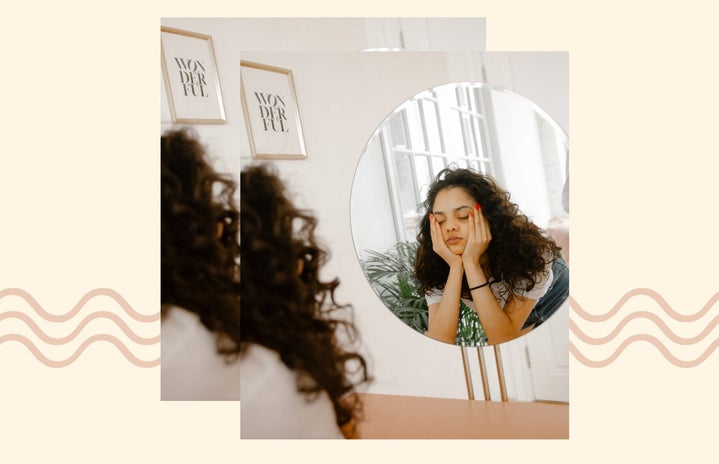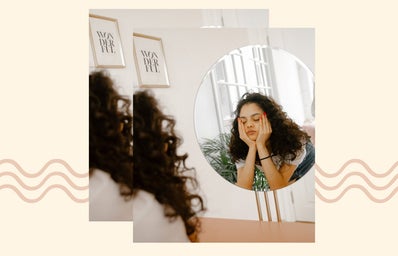Trigger Warning: Body Image, Eating Disorders, Body Dysmorphia
Content perpetuating body image issues seems like a staple for every social media platform. I’m used to algorithms on YouTube and Instagram flooding my recommended page with extreme diets and workouts. However, this trend is especially striking on my TikTok For You Page.
Every time I’m on TikTok, I scroll through countless videos of women voicing hatred for their bodies, filming how little they eat, and giving weight loss advice. In the comments section, women commiserate about their insecurities and express aspirations to look like the girl in the TikTok. At best, daily exposure to this kind of content is tiresome. But at worst, it can initiate or exacerbate struggles with self-confidence. As a result, the app fuels incredibly dangerous body image issues, particularly among young female users.
I’m not the only one who feels this way about the app’s harmful effects. Many TikTok users have taken to other social media platforms to express their opinions. Twitter user Natalie (@yxriwins) writes that there is “really triggering stuff about eating disorders and body image on [her TikTok For You Page].” Another Twitter user named Sonali (@ariesonali) observes that her TikTok For You Page “keeps giving [her videos] of girls meal prepping [and] doing restrictive diets with listed calorie amounts,” and that the app is “horrible” for people who “struggle with food/body image/health.” Clearly, many women’s For You Pages are dominated by this type of negativity.

Unfortunately, these destructive videos are impossible to escape. No matter how many times I hit the “Not interested” button on a video, the damaging content still creeps onto my For You Page. Whether users are struggling with body image or not, it’s unfair to have these messages shoved down our throats.
Despite the overwhelming presence of these videos, many of them technically are not permitted. According to the app’s Community Guidelines, TikTok aims to “avoid normalizing, encouraging, or triggering self-harm behavior.” Specifically, “[c]ontent that promotes eating habits that are likely to cause health issues is […] not allowed on the platform.” Call me crazy, but I think videos of women excitedly sharing their calorie deprivation or crying about their sugar intake fall under this prohibited category. I know the harmful videos are user-generated, but TikTok feeds into the problem by ignoring its own rules.
However, even if these videos are removed due to their violation of guidelines, social media platforms like TikTok still promote certain beauty standards. As Twitter user Krystal (@cxtaex) puts it, her Instagram and For You Page are filled with “a bunch of skinny hourglass girls[,]” which leads her to “[spiral] into body insecurity and dysmorphia.” Although some content doesn’t explicitly advocate for diet or exercise regimens, constant representation of a singular body type can cause or worsen insecurities.
Even though these issues are difficult to tackle all at once, addressing problems with the TikTok For You Page is a great step. The app should enforce its Community Guidelines by discouraging and removing videos about body-shaming, dangerous weight loss, and strict meal plans. By cutting out these toxic messages, TikTok can better empower people of all sizes. Every social media app would benefit greatly from creating a more body positive platform. After all, life on and off social media is a whole lot more fun when you feel confident.



